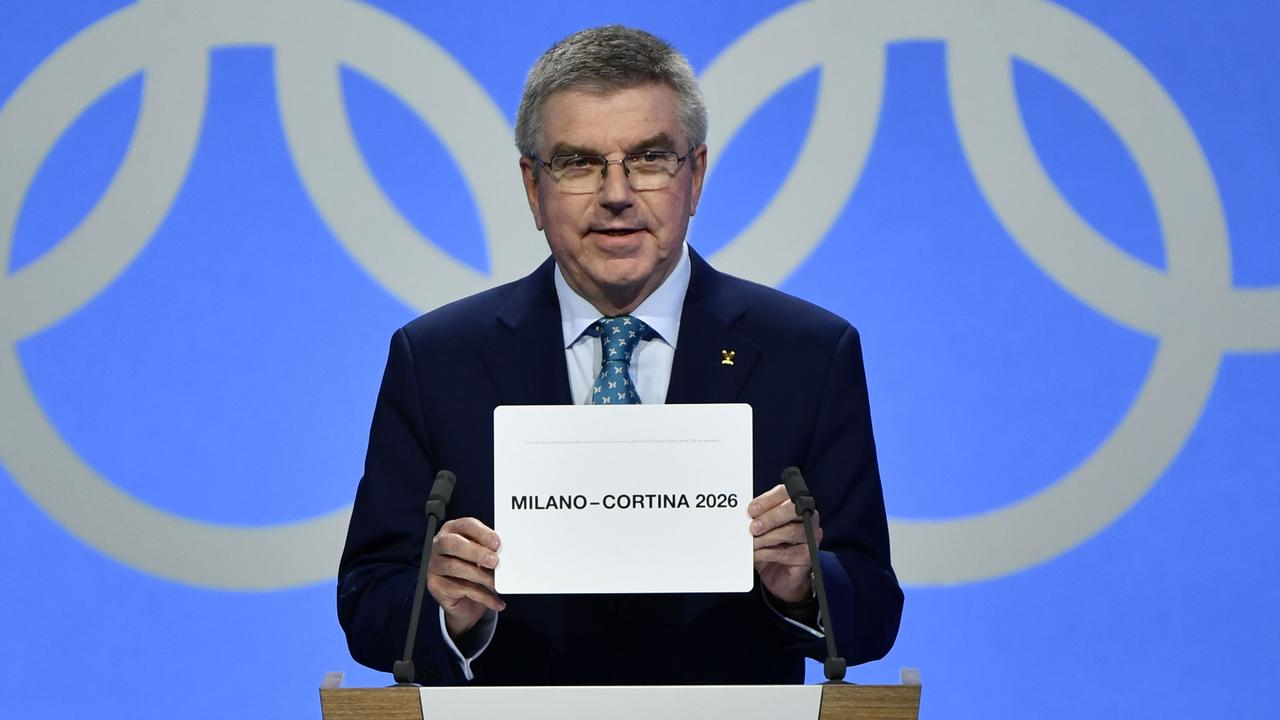
Jubilation for the winners from Italy. A shrug of indifference by the losers from Sweden.
Milan and Cortina d’Ampezzo are promising an Italian Olympics packed with style after winning the right to stage the 2026 Winter Games.
Milan earned 47 votes from the International Olympic Committee membership, compared to Stockholm’s 34, prompting loud celebrations from the bid team, which had earlier included Prime Minister Giuseppe Conte.
“Italy, the future and sport have won,” Italy’s Deputy Prime Minister Matteo Salvini said back in Italy.
“Thanks to those who believed in it right away, especially in the Municipalities and Regions, and a pity for those who gave up.
“There will be at least $8.2 billion in added value, 20,000 jobs, as well as many new roads and sports facilities. With the Winter Olympics we will confirm our excellence and our skills to the world.”
Milan and Stockholm were the only candidates left after four other cities — Switzerland’s Sion, Japan’s Sapporo, Austria’s Graz and 1988 hosts Calgary in Canada — had dropped out of the race with concerns over the size and cost of the event.
SWEDEN SIGHS AFTER COMING SECOND
Stockholm’s failed bid provided insight into the psyche of the Swedish population when it comes to getting behind ventures like a majorsporting competition.
Even the opportunity for a winter sports giant to host a Winter Games for the first time in its history couldn’t stir up enough emotions in a country sometimes known for its reserved people.
“I think it’s really hard to get public support for anything in Sweden, especially for this,” Helene Hellmark Knutsson, a Swedish lawmaker and chair of the Stockholm sports council, told The Associated Press.
Sighs greeted the result that meant Italy would host a Winter Olympics for the second time in 20 years, after Turin in 2006, but many in Sweden will not lose sleep over it.
Polling from the International Olympic Committee in the lead-up to the vote found backing from local residents was only around 55 per cent in Sweden, compared to 83 per cent in Italy, and even Stockholm-Are bid chiefs had previously accepted that the Swedish mentality was to be questioning rather than supportive.
“Swedes have been a little more reluctant than the Italians in terms of welcoming the games but I think that it (is) part of our culture,” Andreas Hatzigeorgiou, CEO of the chamber of commerce, told the AP after the result was announced. “We don’t jump into things with huge excitement before knowing the details first.”
ITALIAN CHIEF CLOSE TO TEARS
Italy’s winning bid highlighted the growing gap between the north and the south of the country.
It is the third time an Olympic Games will be held in the north of Italy after Turin hosted in 2006 and Cortina staged in 1956 and comes shortly after two Rome bids for the Summer Games had to be scrapped.
Rome, which hosted the Olympics in 1960, was forced to end its bid for the 2024 Games because of staunch opposition from the city mayor. And in 2012, then-premier Mario Monti scrapped the city’s candidacy for the 2020 edition because of financial concerns.
“Milan and Rome are so different,” Milan mayor Giuseppe Sala said. “But the most important thing is that the basic structure of services are different: in terms of public transport, in terms of waste collection, in terms of medicine and so on.”
The 2026 Games will be held in two of the wealthiest regions of Italy — and indeed Europe.
They serve as a contrast to Italy’s underdeveloped south, where youth unemployment runs 50 per cent or higher, and the jobless rate among all ages is nearly double that in the north.
While Rome is Italy’s actual capital, Milan is the nation’s business and financial capital as well as one of the world’s leading fashion hubs. Milan has grown significantly over the past decade and was further boosted by hosting the Expo World Fair in 2015.
Italian Olympic president Giovanni Malago had a more concise explanation. “Simple,” he said, speaking in English. “The mayor of Milan and the mayor of Cortina gave me faith and the mayor of Rome did not give me faith. This is true.”
An emotional Malago was close to tears at the winner’s news conference. The 60-year-old said it goes some way to easing the pain of the bid being scrapped in Rome — his home city.
“There is no personal sense of revenge but just the really great win of an Olympic committee of which I have the honour to be president,” Malago said. “I think in life you have to risk things, responsibly, and our courage was rewarded.
“The wound has closed completely but if you lift up the shirt you’ll see the scar. The scar will always remain because Rome remains my city.”
— wires
